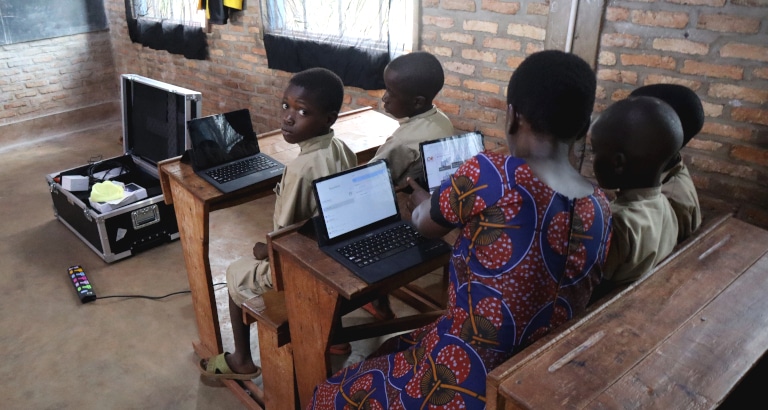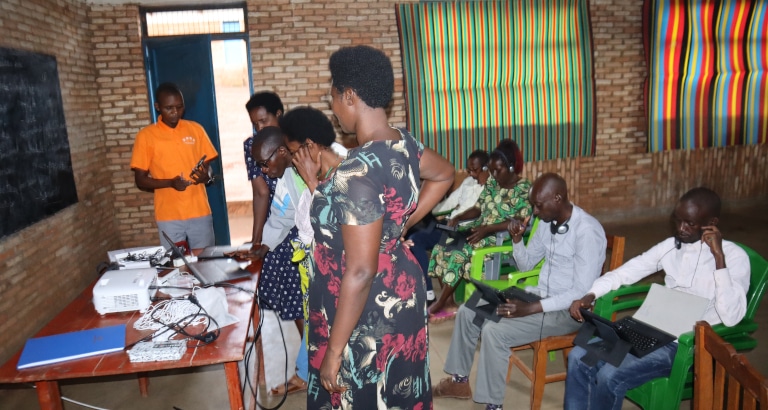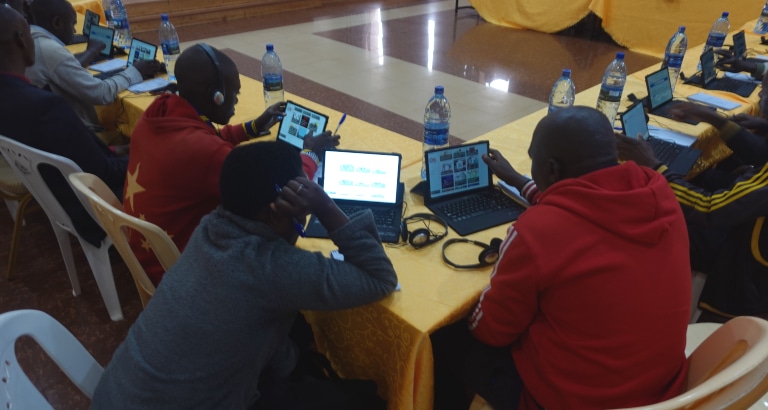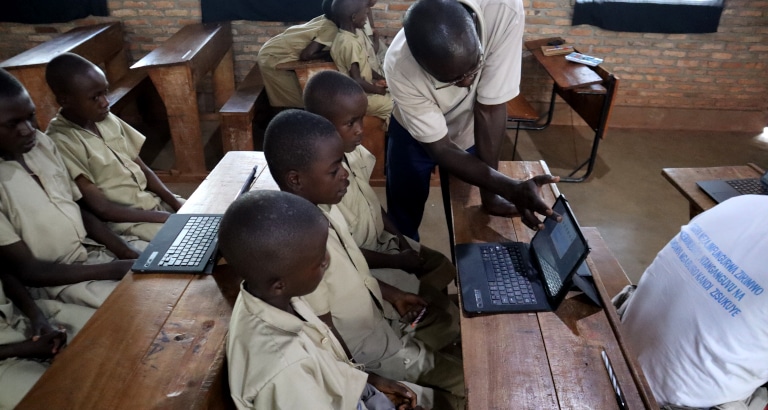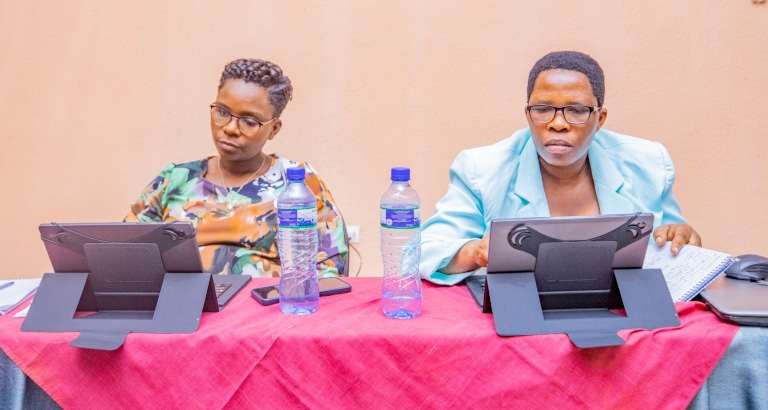In Burundi, access to quality education is a major challenge. The obstacles are numerous and deeply rooted: poverty, a glaring lack of educational infrastructure, a shortage of qualified teachers, disparities between rural and urban areas, and classroom overcrowding all heavily impact the learning environment and impede the academic success of students.
Seeking to address these challenges, Bibliothèques Sans Frontières (BSF) has implemented numerous programs over the last ten years to support the education of children and adolescents in schools, on the street, and in refugee camps. The latest initiative: the installation of our Ideas Cube digital libraries at several schools in remote areas of Burundi to improve the quality of local education. Interview with Nadine Dusenge, project coordinator for BSF in Bujumbura.
“Two thirds of the Burundian population is under 25. Faced with social and political crises, rapid population growth, a lack of educational resources, and limited access to information, it is more important than ever to provide people with the means to master writing and reading, to learn, to express themselves, and to have an opinion.
The transfer of knowledge enables the autonomy of populations.” Nadine Dusenge
As part of the DIRECCT program, funded by the European Union and managed by the French Development Agency, BSF and its partners deployed twenty Ideas Cubes in several provinces of the country in the autumn of 2023. These energetically self-sufficient digital libraries, created by the organization in 2015, can operate without the need for an internet connection and offer access to thousands of educational materials and cultural content in the most remote areas of the country.

